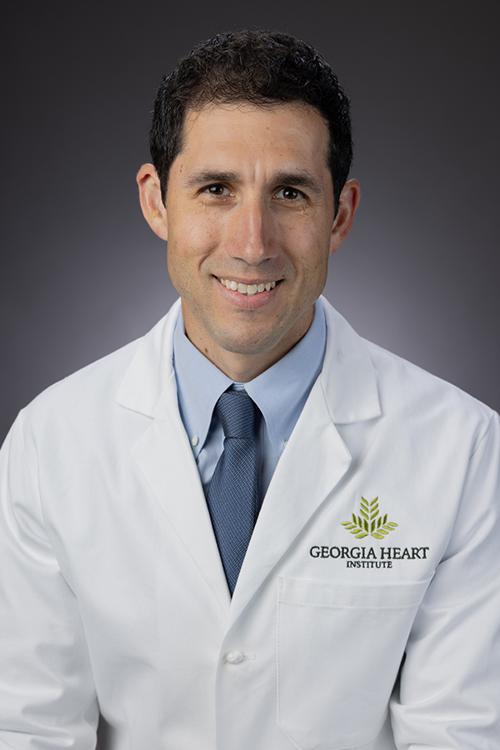Your heart is a powerful pump that works nonstop to keep blood flowing through your body. It has four valves — mitral, tricuspid, aortic and pulmonic — that open and close with each heartbeat to keep blood moving in the right direction. These valves act like one-way doors, ensuring blood flows forward through the heart and into the rest of the body. When working properly, they help maintain normal circulation and reduce strain on the heart muscle.
But what happens when one of these valves leaks? Can the heart still function?
Yes, the heart can still function with a leaky valve — at least for a while. This condition, known as valve regurgitation, means the valve doesn’t close properly, allowing blood to flow backward. Over time, this can make the heart work harder and may lead to serious health problems if not treated.
Understanding heart valve disease
There are several types of heart valve disease:
- Regurgitation: The valve doesn’t close tightly, causing blood to leak backward.
- Stenosis: The valve becomes stiff or narrow, making it harder for blood to flow through.
- Prolapse: The valve flaps bulge backward, often leading to regurgitation. This is common in mitral valve prolapse.
- Atresia: A valve is missing or didn’t form properly, usually present from birth.
Each of these conditions can affect how well your heart pumps blood and may lead to symptoms such as fatigue, shortness of breath, chest pain or other heart valve symptoms.
What Does the mitral valve do?
The mitral valve sits between the left atrium and the left ventricle. It opens to let oxygen-rich blood from the lungs move into the left ventricle, which then pumps it out to the rest of the body. When the mitral valve closes, it prevents blood from leaking back into the atrium.
What happens when the mitral valve doesn’t work right?
Sometimes, the mitral valve doesn’t close properly. This is often called a leaky valve. When this happens, blood flows backward into the left atrium. This condition is known as mitral valve regurgitation. It can make your heart work harder and may lead to symptoms like:
- Feeling tired or weak
- Shortness of breath, especially when lying down
- Swelling in your feet or ankles
- A fluttering or pounding heartbeat (called palpitations)
Another common problem is mitral valve prolapse. This happens when the valve’s flaps (called leaflets) bulge backward into the atrium. It may not cause symptoms at first, but over time, it can lead to regurgitation.
In more serious cases, the valve can become stiff or narrow. This is called mitral valve stenosis, and it can block blood flow and cause pressure to build up in the lungs.
When should you see a doctor?
Many people with mild valve problems don’t have symptoms and may not need treatment right away. However, you should seek medical attention if you experience:
- Shortness of breath, especially during activity or when lying down
- Chest pain or pressure
- Dizziness or fainting
- Swelling in your legs or ankles
- A fluttering or racing heartbeat
Even if you feel fine, regular check-ups are important. Some valve problems can worsen over time without obvious symptoms. A cardiologist who specializes in valve disease can help monitor your heart and recommend when treatment is needed.
How Is a leaky valve diagnosed?
Doctors use several tools to check your heart valves:
- Echocardiogram: Uses sound waves to create images of your heart and show how blood flows.
- Electrocardiogram (EKG): Measures your heart’s electrical activity.
- Chest X-ray: Shows the size and shape of your heart.
- Cardiac MRI or CT scan: Provides detailed images of your heart.
- Cardiac catheterization: A thin tube is inserted into a blood vessel to measure pressure and blood flow in the heart.
Treatment options
Treatment depends on how severe the valve problem is and how it affects your daily life. Options include:
- Medical management: Medications can help control symptoms and reduce strain on the heart.
- Open-heart surgery: In some cases, the valve needs to be repaired or replaced through traditional surgery.
- Minimally invasive procedures: For patients who are not good candidates for open-heart surgery, newer techniques such as Transcatheter Aortic Valve Replacement (TAVR) or Transcatheter Edge-to-Edge Repair (TEER) for the mitral valve can be life-changing. These procedures use a catheter (a thin tube) inserted through a blood vessel to repair or replace the valve without opening the chest.
Your cardiologist will help determine whether valve repair vs. replacement is the right option based on the type and severity of the valve disease.
Take the next step
Yes, the heart can function with a leaky valve, but not forever. If you or a loved one has been told you have a heart murmur, mitral valve prolapse, or any other valve condition, don’t ignore it. Early detection and treatment can protect your heart and improve your quality of life. The Structural Heart Center at Georgia Heart Institute offers specialized, focused care in this area of cardiovascular medicine.
Learn more about heart valve disease and treatment options at georgiaheartinstitute.org/structural. To schedule an appointment with a cardiologist, click the button below or call 770-219-5242.
Marc Allard-Ratick, MD, is an interventional cardiologist who practices with the Structural Heart Center of Georgia Heart Institute.



